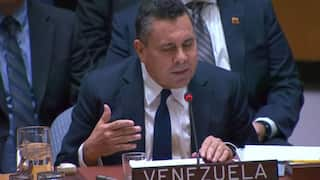India's Foreign Policy Should Reflect Its Future Role As A Major Power
India’s foreign policy always sought positive quest to reform and, where possible, transform world order—a geopolitical concept that can transcend geography to look at international system as a whole.

India’s foreign policy in the past decade has shown the ability to navigate a complex and turbulent world and leverage, where possible, geopolitical and geoeconomic advantages from the changing world order.
Yet, as the world order undergoes further transformations, it has become imperative to conceive of a geopolitical framework. Without a prism to interpret different events and crises there is a risk of Indian policy responses becoming overly transactional or getting swayed by the geopolitical fads of the season. It also makes the task of Indian public diplomacy more difficult, with each policy requiring justification to the so-called international community.
Historical Legacies
So how do we think about a geopolitical concept for the present era? India’s foreign policy thought has been influenced by two key geopolitical approaches – British India colonial-era geopolitics and Cold War-era geopolitics. The emerging world order requires Indian policymakers to recognise these historical legacies while charting a course for the complex multipolar world that is coming into being.
British Indian geopolitics was driven by the objectives of leveraging the Indian subcontinent to fuel British economic power, project British power across Asia and at the same time isolate India from other centres of wealth and power. It also severed India’s extensive pre-colonial geo-connection and geo-cultural connections with the wider surrounding regions.
We can also recall the image of the ‘great game’ where India was the prize to be secured in the great power rivalry between Britain and Russia. Almost all British-Indian continental military interventions such as in Afghanistan and Tibet were in one way or another linked to the Anglo-Russian relationship. It was this period that also gave us the ‘maritime versus continental’ image where geographers like Halford Mackinder gave expression or a rationale to British grand strategy by outlining a geopolitical concept where the continental Eurasian heartland was seen as the main area to contain and, where possible, confront.
"India’s foreign policy thought has been influenced by two key geopolitical approaches – British India colonial-era geopolitics and Cold War-era geopolitics."
For India, the unusual role it came to play in the era of British preponderance might have given the illusion of a natural Indian primacy in the Asian environment and perhaps a bias towards a system of spheres of influence, with the British Indian one being the largest in Asia. But this was an aberration rather than the norm of affairs if we look at a longer span of history. In its natural state, Asia and Eurasia was a far more complicated arena as well as a more plural and interconnected world than the era when British-India towered over the rest.
Indian geopolitical thought is still influenced by this colonial-era geopolitics, despite the dramatic turning points 75 years ago. Indian independence was accompanied by two major events that transformed the geopolitics of the region and the world. India faced a major shock on its periphery with the division of the subcontinent and a global disruption with the outbreak of the US-Soviet rivalry.
This phase saw new geopolitical concepts, some ironically reinforcing British-era thought. Nicholas Spykman, a US geostrategist, outlined a sequel to the Mackinder framework by suggesting a map of the world that was divided between the continental heartland of Eurasia and the maritime Rimland regions on the periphery, the latter being the areas for US power projection and establishment of political, economic and military footholds. The Soviet containment strategy required the main Rimland regions to fall under the sway of the US system of collective security, or at the very least not become a bridgehead for Soviet power. Therefore, from the Persian Gulf, to Pakistan, to South East Asia, to the Korean peninsula and the Japanese archipelago, these areas became central in Spkyman’s geopolitical concept and subsequently in US foreign policy.
On this occasion, faced with pressures to align with the superpower blocs, independent India had to choose a geopolitical framework. The primary objective was straightforward – safeguarding the newly secured sovereignty that could be undermined by participation in the Cold War.
"We still have an insufficiently developed school of Indian geopolitics that has not yet consciously fused or come to terms with our three core international identities."
This was the context behind the articulation of non-alignment. India rejected the idea that there were only two options available. For India, there was a third area of the world order – a post-colonial group of countries, large, diverse and growing each year. It was a precursor to today’s Global South. The intention was never to lead a third bloc or to solve the internal problems of the non-aligned world. It was primarily to provide a legitimate geopolitical identity to states like India that sought to preserve security and independence.
Any honest historical appraisal will credit India with being one of the main intellectual vanguards of freedom for those who did not wish to choose political or military alignment as the basis for foreign policy but needed a legitimate concept to underpin their international role.
ALSO READ | Why Operation Dost Could Prove To Be A Diplomatic Game-Changer For India
Indian School Of Geopolitics
Does India need to revise or adapt its geopolitical framework to intellectually manage the transition to a multipolar world order? And if so, what would be the main features of this revised geopolitics?
If the global and regional setting has changed, historical concepts cannot alone suffice to help navigate the future. The temptation to grasp British-era concepts must be tempered by the power realities of our time and the national interest. The frontline security role played by India a century ago as a so-called ‘net security provider’ for Britain’s competition with its rival great powers, cannot in a new avatar serve as a realistic template for the future.
The Cold War era phase is more complex because the Indian agency actually existed and geopolitical choices were pursued, which on the whole did provide security. Today, the balance of power and the complex forms of interlinks between the great powers might not allow for a conventional non-aligned strategy to provide the goods, though political-military neutrality continues to retain its obvious logic and advantage in the context of the various existing and potential flashpoints.
We also need to be careful about how we think about the continental versus maritime binary. Remember that Mackinder and Spykman created concepts and a map of the world that was envisioned from the perspective of a maritime great power looking from the outside at the Eurasian supercontinent and its maritime littoral regions. But is that map relevant for India? What are the fundamental characteristics of India’s geopolitical environment?
India is located at the crossroads of different regions, civilizations, and security complexes, each with their own local dynamics. Not all these security complexes require an extra-regional role for India. Part of the reason why India gets offered different political-security roles and pulled in different directions is we still have an insufficiently developed school of Indian geopolitics that has not yet consciously fused or come to terms with our three core international identities – the post-colonial identity of strategic independence or strategic autonomy, India’s larger civilizational identity as a distinct geo-cultural and geo-political centre, and India’s major power identity to emerge as a future pole in a plural multipolar order.
That being said, the continental and maritime facets of India’s immediate geopolitical environment around the subcontinent entail opportunities and risks; opportunities for new geoeconomic connections but also risks of costly security competitions.
The continental dimension implies a certain role, the maritime one involves another role. It is important to be clear what these roles would entail in practice and then devote resources and a strategy towards each of them. For instance, it seems quite clear that classical geopolitical considerations of frontier and homeland security will always require a level of continental attention that cannot be compensated or substituted by an enhanced maritime role and identity. An Indian maritime role must strive to address the military security and geoeconomic interests of the subcontinent and not aspire to be a chess piece in Spykman’s Rimland theory to encircle the Eurasian heartland.
The other aspect that any geopolitical concept must account for, is the continuing requirement for interdependence. Unlike the Cold War or even unipolarity, a multipolar world is proving to be a far more complex setting where competition and geoeconomic cooperation can and do occur with the same actor. Articulating a geopolitical concept that is less imbued with ideology and more with identifiable social and material interests will empower India’s foreign policy with the creativity and flexibility to build partnerships and networks without being boxed into an all-encompassing ideological straightjacket that entraps India in bloc-based politics.
Finally, India’s foreign policy, even from a vantage point of basic self-interest, has always sought a positive quest to reform and, where possible, transform world order. This again implies a geopolitical concept that can transcend geography to look at the international system as a whole. A concept that is open and outward-oriented to developing collaborative networks and innovative multilateral institutions that can advance reform or change in different issue areas and regions.
Zorawar Daulet Singh is an author and foreign affairs analyst based in New Delhi. He is an Adjunct Fellow at the Institute of Chinese Studies.
[Disclaimer: The opinions, beliefs, and views expressed by the various authors and forum participants on this website are personal and do not reflect the opinions, beliefs, and views of ABP News Network Pvt Ltd.]
This article was first published on NatStrat.org with the headline, 'Geopolitics for a multipolar era'.
Related Video
India@2047 Summit: Modi Calls for Innovation, Reforms, and National Resolve






































